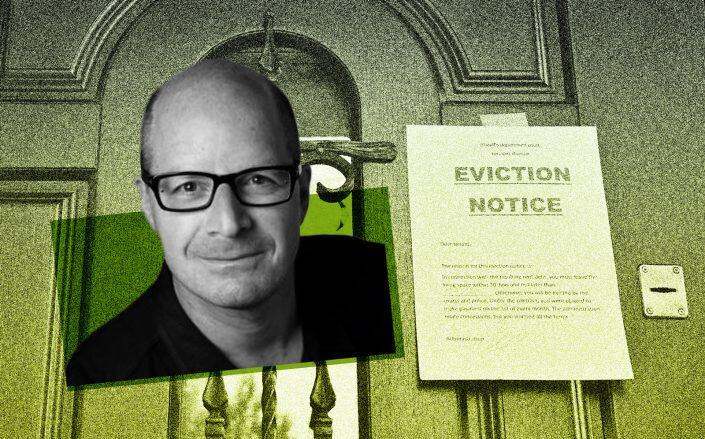
Landlord trade group’s petition gets attention of at least one justice
A landlord group’s challenge to the City of Los Angeles’s long-running — and controversial — eviction moratorium has moved a step closer to a hearing before the Supreme Court.
The development came when the court requested a response in the case from the City of Los Angeles. The odds of an eventual hearing before the nation’s top court remain long, but the request on January 10 means that the challenge from the Apartment Association of Greater Los Angeles (AAGLA) is still alive — and that at least one justice was interested in the case.
“Every week they kick like a couple dozen of these [petitions] without a response, so the fact that someone the court is interested is definitely a positive sign,” said Jared McClain, a lawyer with the New Civil Liberties Association, a legal advocacy group that is supporting AAGLA’s challenge.
Numerous amicus briefs that were filed in support of AAGLA, McClain added, supplementary interest that likely helped put the challenge on the justices’ radar.
“It showed the court that there’s interest in the community about this case, and probably got someone’s attention on the court,” he said.
A lawyer working on the case for the City Attorney’s office declined to comment, referring The Real Deal to an office representative. The representative also declined to comment.
A lawyer representing AAGLA did not immediately respond to a request for comment.
The Supreme Court’s action was the latest twist in what’s become a protracted, high-stakes legal battle that also illuminates a stark line cutting through everyday life and the economy. Many renters as well as landlords have grown increasingly adamant from opposite viewpoints of the eviction moratorium as the pandemic approaches its third year.
“It is, but for the shooting, a war in every real sense,” one district judge noted as part of an opinion related to AAGLA’s challenge. “Hundreds of thousands of tenants pitted against tens of thousands of landlords — that is the tragedy that brings us here.”
Read more
- Silence of the landlords: Upstate owners mute as eviction limit advances
- LA tenants now have more options to sue landlords for harassment
- Meet the 400 landlords that are taking rent laws into their own hands
The City of L.A. issued its first eviction moratorium, and a freeze on rent hikes, in March of 2020, as a response to the sudden economic collapse brought by the early effects of Covid-19 and related shutdowns. The measures were intended to stave off another potential crisis: tens or hundreds of thousands of newly unemployed renters facing homelessness. But the tenant-centered protections meant that area landlords also lost income, and many small property owners have faced increasing economic hardship.
“I don’t think legislators understand this side of the coin,” Irma Vargas of RST & Associates, a management firm that works with small property owners, said last summer. “They all think landlords are these fat cats that can withstand, and they can’t.”
While federal and state eviction moratoriums have recently expired, the City of L.A.’s — which is tied to a local emergency order and has the strong support of local politicians, including Mayor Eric Garcetti — remains in place.
AAGLA filed its first legal challenge to the ordinance in federal district court in 2020. The group lost that case last August, when a federal appeals court also denied the challenge.
But the case has found some broader support within the real estate community and certain legal circles. The New Civil Liberties Alliance, a Washington, D.C.-based advocacy group, filed an amicus brief supporting the Supreme Court challenge in late December; the California Apartment Association, California Association of Realtors and the Foundation for Moral Law, a rightwing, Alabama-based legal nonprofit, have also filed amicus briefs in support.
Two tenant rights groups – the Alliance of Californians for Community Empowerment Action and Strategic Actions for a Just Economy (SAJE) – are supporting the City of Los Angeles.
AAGLA’s legal challenge relates to the U.S. Constitution’s
Contract Clause which concerns private contracts and the limits of governmental interference. The landlord group is arguing the City of L.A.’s eviction moratorium, which permits tenants to forestall previously agreed upon rent payments, amounts to an illegal intervention; a potential Supreme Court hearing on the case, or a similar one, could have major ramifications for both the real estate industry and broader economy.
The court will likely decide in March whether or not to hear AAGLA’s challenge.


